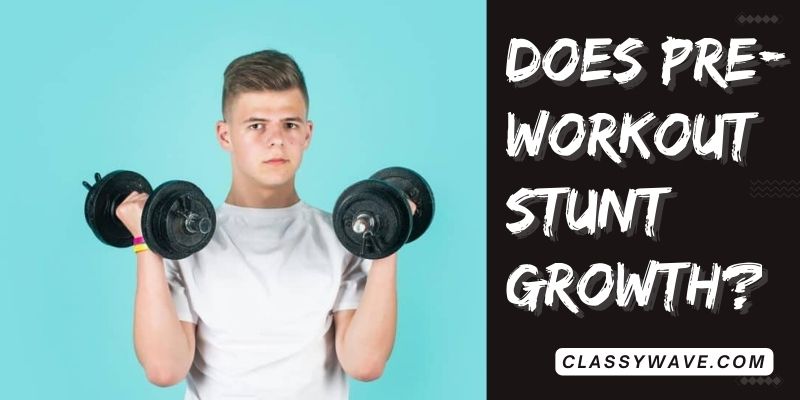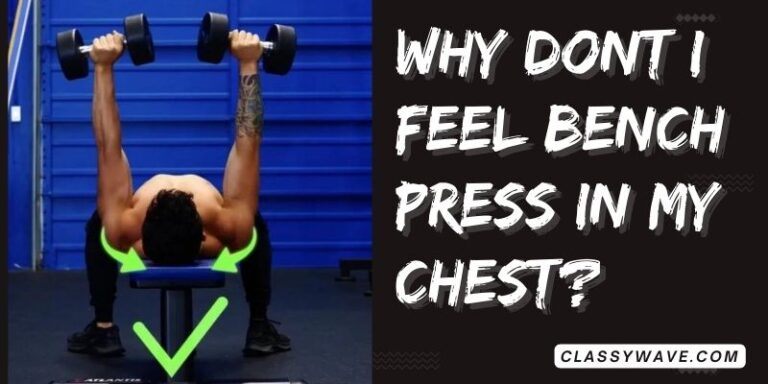Does Pre-workout Stunt Growth- Unveiling Myths
Curious if pre-workout supplements could affect your growth? The answer isn’t as straightforward as you might think. Some argue it hinders growth, while others claim the opposite. To unravel the mystery and make an informed decision, delve into the nuanced world of pre-workout supplements and their potential impact on growth. Read on
Does Pre-Workout Stunt Growth?
Pre-workout supplements are popular among athletes of all ages, but some people worry that they may stunt growth in children and adolescents. However, there is no scientific evidence to support this claim.
What is pre-workout?
Pre-workout supplements are dietary supplements that are taken before exercise to improve performance. They typically contain ingredients such as caffeine, creatine, beta-alanine, and nitric oxide boosters.
How does pre-workout work?
Pre-workout supplements work in a variety of ways to improve athletic performance. Caffeine can increase energy and alertness, creatine can improve muscle strength and power, beta-alanine can reduce muscle fatigue, and nitric oxide boosters can improve blood flow to the muscles.
Does pre-workout stunt growth?
There is no scientific evidence to suggest that pre-workout stunts growth. In fact, some studies have shown that resistance training, such as weightlifting, can actually promote growth and development in children and adolescents.
However, it is important to note that pre-workout supplements are not regulated by the FDA, so it is important to choose a reputable brand and follow the dosage instructions carefully.
Is pre-workout safe for children and adolescents?
The American Academy of Pediatrics (AAP) recommends that children and adolescents avoid pre-workout supplements. This is because pre-workout supplements can contain high levels of caffeine and other stimulants, which can have negative side effects such as anxiety, insomnia, and headaches.
The AAP also recommends that children and adolescents get their energy from healthy foods and drinks, rather than from supplements.
Tips for safe and effective pre-workout use for children and adolescents
If your child or adolescent is interested in using pre-workout supplements, it is important to talk to their doctor first. Your doctor can help you choose a safe and effective product and can advise you on the appropriate dosage.
Here are some additional tips for safe and effective pre-workout use for children and adolescents:
- Choose a reputable brand and follow the dosage instructions carefully.
- Avoid pre-workout supplements that contain high levels of caffeine and other stimulants.
- Talk to your child or adolescent about the potential side effects of pre-workout supplements.
- Encourage your child or adolescent to get their energy from healthy foods and drinks, rather than from supplements.
The Impact of Caffeine in Pre-Workout on Adolescent Health
This heading refers to the potential effects of caffeine on adolescent athletes. Pre-workout supplements often contain high levels of caffeine, which can have a number of negative effects on adolescents, such as increased anxiety, trouble sleeping, and headaches. Additionally, caffeine can be addictive, and adolescents who regularly consume pre-workout supplements may have difficulty abstaining from them.
Safe Alternatives to Pre-Workout Supplements for Adolescent Athletes
This heading provides information on safe alternatives to pre-workout supplements for adolescent athletes. These alternatives may include eating a healthy meal before a workout, getting enough sleep, and staying hydrated. Additionally, there are a number of natural supplements that can help to improve athletic performance, such as creatine and beta-alanine.
Balancing Nutrition and Performance: A Guide for Adolescent Athletes
This heading provides information on how adolescent athletes can balance nutrition and performance. Eating a healthy diet is essential for adolescent athletes, as it provides them with the energy and nutrients they need to train and compete at their best. However, it is also important for adolescent athletes to avoid overeating, as this can lead to weight gain and other health problems. Additionally, adolescent athletes need to be mindful of their fluid intake, as dehydration can lead to fatigue and decreased performance.
Conclusion:
Pre-workout supplements, while not proven to stunt growth, pose potential risks for children and adolescents due to unregulated ingredients and high caffeine content. The American Academy of Pediatrics advises against their use in this age group. Instead, prioritize a balanced diet, hydration, and adequate sleep for young athletes. Consult with a doctor before considering any supplement, emphasizing safety and mindful choices.
FAQs
Question: Does pre-workout affect growth in teenagers?
Answer: No, when used responsibly, pre-workout supplements do not stunt growth. Consult a healthcare professional for personalized advice.
Question: Can girls take pre-workout without affecting their height?
Answer: Yes, pre-workout won’t affect height. Choose products with safe ingredients. Moderation and consultation with a healthcare professional are key.
Question: Is it safe for adolescents to use pre-workout supplements?
Answer: Generally, yes. Choose age-appropriate products, and follow recommended dosages. Consult with a healthcare provider for personalized guidance.
Question: Does caffeine in pre-workout affect bone development in teens?
Answer: In moderation, caffeine poses no significant risk to bone development. Maintain a balanced diet and stay hydrated for overall health.
Question: Are there natural alternatives to pre-workout for teenagers?
Answer: Absolutely. Consider options like a balanced meal, hydration, and proper sleep. Consult a healthcare professional for personalized recommendations.







